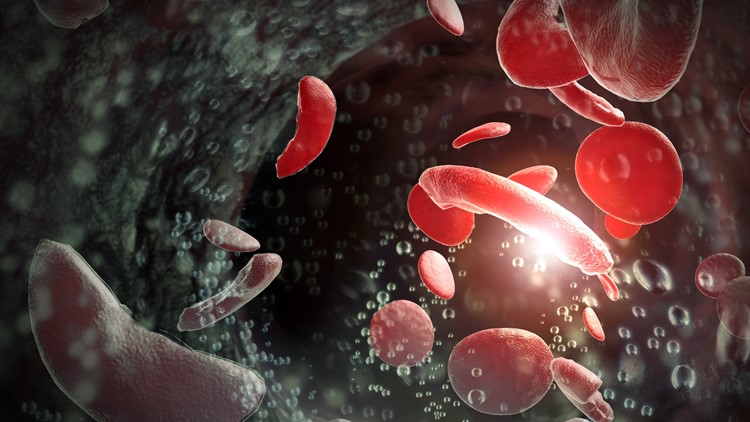RALEIGH, N.C. — Chris Ruffin Jr.'s journey has been a different one. At birth, he was diagnosed with sickle cell disease.
“My dad has the trait, and my mom has the trait as well,” Ruffin told WCNC Charlotte. “My family never made me feel different, but people on the outside made me feel different sometimes.”
Ruffin is embracing and navigating his up-and-down journey with the disease.
“My wife does a great job at making sure we have the fruits and vegetables around the house. I’m half pescatarian, half vegan,” Ruffin said.
Nearly two years ago after moving to Memphis, Tennessee from Charlotte, Ruffin hit an unexpected bump in the road after contracting COVID-19. The virus exacerbated his condition and ended him in the ICU for nine days.
“For myself it was dang, I can't believe this is happening,” Ruffin shared. “Every day you just pray that the next morning you feel one percent better or two percent better.”
His story is just one of many, as millions of people worldwide deal with sickle cell. The disease is genetic and affects red blood cells, causing anemia, pain and many other problems.
Dr. Janelle White, Chief Medical Officer for North Carolina Medicaid, said the state is working to make patients’ lives better.
“We have the opportunity to improve the life expectancy gap," White said. "We have the opportunity to improve quality of life."
The North Carolina Department of Health and Human Services is pushing to participate in the Cell and Gene Therapy Access Model, a federal program aiming to improve health outcomes for people living with the disease.
“These therapies can correct underlying causes of the disease, address symptoms and also halt disease progression,” White explained.
According to NCDHHS, 68,000 people in North Carolina have sickle cell disease and 95% of those with it are Black or African American.
White said the goal is also to address health disparities and increase access to treatments.
“The purpose of this model is to assist our state Medicaid agencies with dealing with upfront costs,” White said. “That’s the main thing, making it affordable and making it convenient for people."
As for Ruffin, he made a full recovery after his stay in the hospital. As he deals with his journey, he’s also helping others with theirs.
“There are a lot of people that need to know, alright, this is what you need to do. This is who you are. don’t let sickle cell get you down,” Ruffin said.
NCDHHS is planning to apply for the CGT Access Model this summer and could see benefits as early as January 2025.
WCNC Charlotte is committed to reporting on the many issues facing the communities we serve. We tell the stories of people working to solve persistent social problems. We examine how problems can be solved or addressed to improve the quality of life and make a positive difference. WCNC Charlotte is seeking solutions for you. Send your tips or questions to newstips@wcnc.com.
Contact Nick Sturdivant at nsturdiva1@wcnc.com and follow him on Facebook, X and Instagram.



